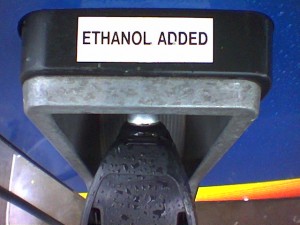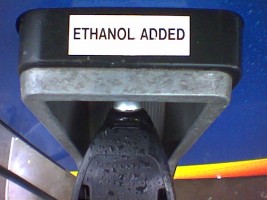 When the National Wildlife Federation speaks out, the nation usually listens. It’s America’s oldest and largest conservation organization, fighting on the front lines for wildlife since 1936.
When the National Wildlife Federation speaks out, the nation usually listens. It’s America’s oldest and largest conservation organization, fighting on the front lines for wildlife since 1936.
They recently hosted a briefing on the recently released Environmental Protection Agency report detailing the serious environmental impacts stemming from the Renewable Fuel Standard, the federal program that mandates the blending of corn- and soy-based fuels into the nation’s gasoline supply. (Which as we all know is a terrible thing to put in our engines. Turns out it sucks for the environment, too. ~ Kelly)
The EPA report is an acknowledgement by the federal government that current federal biofuel policy is wreaking havoc on wildlife habitat, water resources, and air quality. The report—the Second Triennial Report to Congress 2018—comes amid discussions in the U.S. Congress and White House on how best to reform the Renewable Fuel Standard. The First Triennial Report came out in 2011, further proof that bureaucrats can’t count.
The National Wildlife Federation supports common-sense reforms to the Renewable Fuel Standard that promote cleaner, more sustainable fuels that work for people and wildlife.
Speakers said:
David DeGennaro, agriculture policy specialist, National Wildlife Federation
“The Second Triennial Report is a red flag warning us that we need to reconsider the mandate’s scope and its focus on first generation fuels made from food crops. If we do not, then we will continue to see less wildlife and wild land, and more air, water, and climate pollution.” More here.
Jonathan Lewis, senior counsel – climate policy, Clean Air Task Force
“The 2018 Triennial Report indicates that the use of biofuels can negatively impact air quality, and that corn ethanol—which has accounted for more than 85 percent of total RFS compliance—is particularly problematic with respect to NOx emissions and ozone formation.” More here.
Dr. Tyler Lark, associate researcher, Center for Sustainability and the Global Environment, University of Wisconsin-Madison
“By rigorously reviewing the existing data and evidence, this triennial report helps lay to rest some of the tired debate about whether these landscape changes and environmental impacts are occurring, and thus enables more meaningful conversations about how to improve the sustainability of existing biofuel feedstocks, and how to support the development of cleaner, greener next generation fuels, including those from non-food cellulosic feedstocks.” More here.
Dr. Kent Hoekman, research professor, emeritus, Desert Research Institute
“New research has improved our understanding of the environmental impacts of ethanol production and use—confirming many of the impacts that the EPA forecasted in its 2011 report. What is clear is that at today’s production level of ethanol in the United States, the costs far outweigh the benefits, and any increase beyond 15 billion gallons per year should be undertaken with extreme caution.” More here.
The only good thing about this is that the hysterical greenies are super pissed that their biofuel future has been exposed as a the scam real conservationists always knew it was. Biofuels have a future. Crony capitalism should always be exposed for what it is. Big subsidies for Big Farmer.
You can download and read the whole thing here if you can understand CYA BS. BIOFUELS SECTION 204 REPORT FINAL_508
